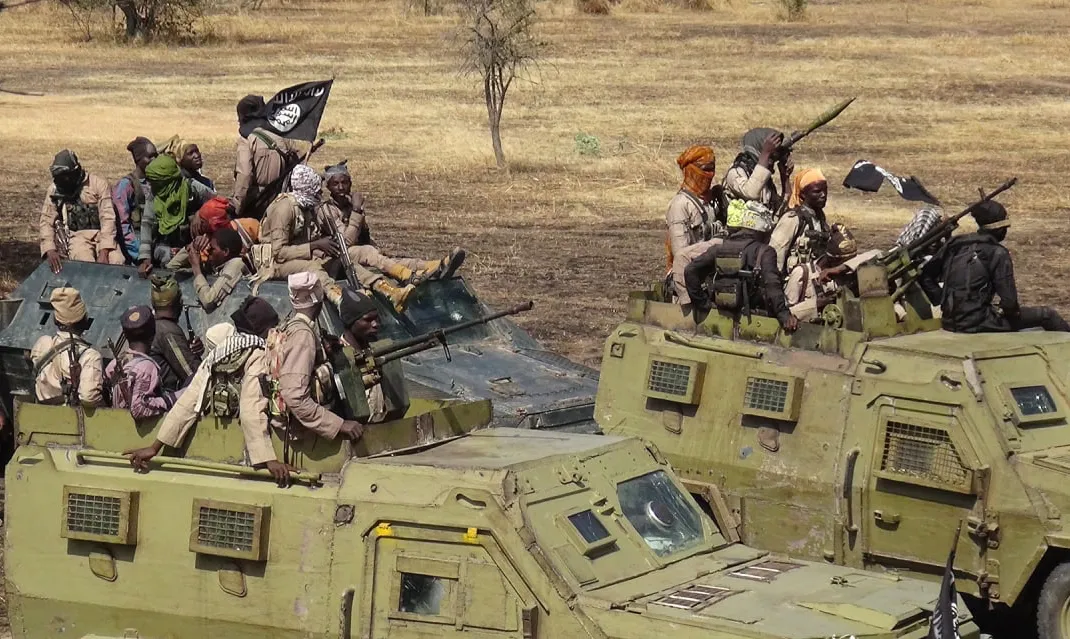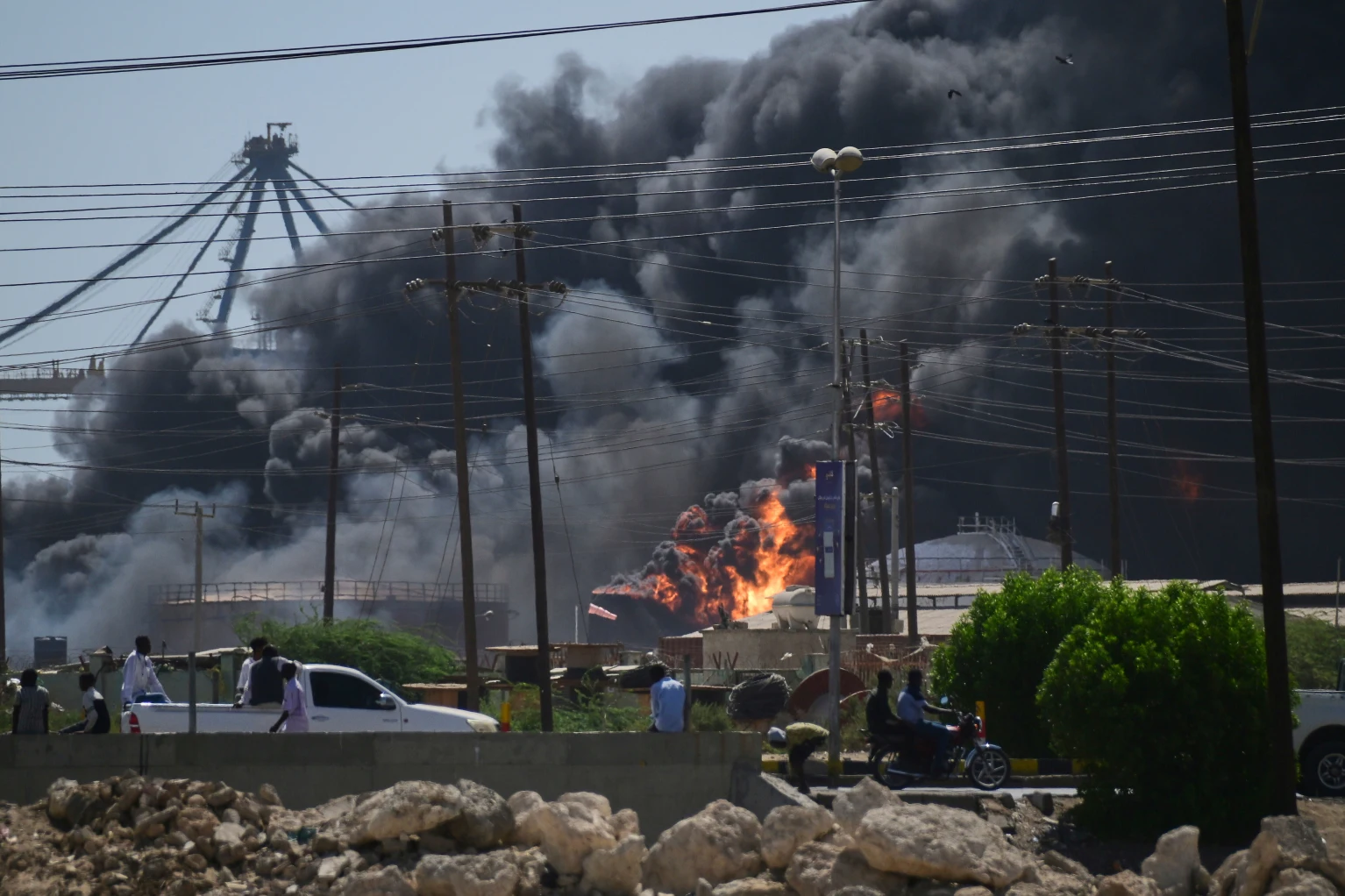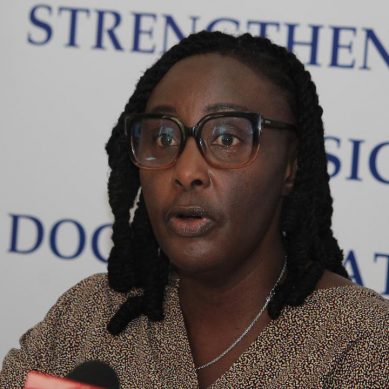
Arawa Modu joined Jama’atu Ahlis Sunna Lidda’awati wal-Jihad (JAS) a decade ago, taken by a relative to Shekau’s Sambisa Forest base when he was aged just 11. He was in Sambisa when ISWAP fought their way in and Shekau detonated his suicide vest to avoid capture.
Modu slipped away and connected with Dar al Gazuwa. He stayed with them until – exhausted by repeated raids by Islamic State West Africa Province (ISWAP) and the army – he surrendered to the military in Bama six months ago. He is currently in the government’s amnesty programme.
For him, fay’u is key to JAS’s survival. He listed kidnapping and roadblocks as lucrative, with rustling livestock and then selling the animals on to JAS-Ngulde for transport to markets in Cameroon as the most profitable. He calculated each JAS fighter earned about 300,000 naira ($200) a month. Their commanders, who share out the booty, make a lot more.
“ISWAP preached to us in Sambisa. They said ‘We’re doing the same work, there is just a misunderstanding, join us’,” he explained. “But they said no fay’u – that was redline between them and us. How can we stay in the bush without fay’u? That’s our livelihood.
ISWAP is entrenched in northern Borno, especially on the western shores of Lake Chad. Its more politically astute approach not only bans fay’u, but focuses on the military as its principal target. However, fearing spying, ISWAP is deeply suspicious of IDPs and violently enforces its control.
Saidu Abacha was resettled in Marte, 130 kilometres northwest of Mauduguri, three years ago. He is still struggling to make a go of it: collecting firewood earns him around $1 a day, if he’s lucky.
But ISWAP is strict over where and how many trees can be harvested. “They say we’re destroying the forest; we’re always nervous because you don’t know when they will come,” he explained.
Protection is part of the equation of a successful resettlement policy, but so too are the economic opportunities that would allow people to make a fresh start. The Borno government’s restrictions on NGOs working with the resettled – and donor aid cuts – have undermined the livelihood support that could have eased re-entry.
Instead, people are being offloaded in rural towns whose local economies have been hammered by years of conflict. Health services – in poor shape even in Maiduguri – suffer from even more extreme staff shortages, drug and funding shortfalls, and physical decay. Schools face similar problems.
In the absence of structured and sequenced support, Borno State Governor Babagana Zulum visits rural towns delivering food and cash handouts. The aid is sorely needed – people are hungry – but the help is ad hoc and resembles political campaigning rather than systematic development assistance.
Buka Bukarslay was resettled in Marte in 2022 with his two wives and nine children. In his first year, he had a brother killed collecting firewood and he himself was shot in the mouth and arm during an ISWAP attack on the town that killed the head of the vigilante CJTF that he was sitting next to.
When he is completely broke, he hitches a ride with traders heading to Maiduguri and looks for help from relatives in the city. “There is no income in Marte,” he explained. He would stay in Maiduguri if he could, but he doesn’t have the money to rent a room and his relatives have no space to spare.
The majority of IDPs are teenagers. They didn’t grow up farming and their social world was the urban IDPs camps. The lack of economic opportunities in the rural areas, the tussles over landownership that exist, and the antagonisms and frustrations stirred by the weakness of state authority can potentially sharpen the ideological appeal of the insurgents.
“The fundamental issue is: what people are returning to,” said the Abuja-based consultant. “The conditions that dragged people into terrorism a decade ago still exist.”
Babagana Umaru fought with JAS until he surrendered in 2017. He joined the federal government’s Operation Safe Corridor (OSC) amnesty programme in 2019, and graduated a year later, before resettling in Banki, on the Cameroon border. The start-up capital he was given was enough to start a roadside fruit and vegetable business.
But he has found civilian life tough. He feels the community hasn’t really forgiven him and chafes at what he feels are deliberate slights when he’s omitted from invitations to weddings and naming ceremonies. His lack of money also grates – compared to what, on reflection, seems now an easier lifer in the bush when fay’u kept him comfortable.
Some of his comrades who also went through OSC feel the same. He says he “knows a couple” who have given up and re-joined JAS.
“Boko Haram calls us to go back to the bush,” he said. “It’s only my mum talking to me saying ‘Don’t go back’ that stops me. But sometimes my heart is heavy and I think about it.”
The same remobilisation is underway among some former JAS fighters who have passed through the state government’s scheme, regarded as less rigorous and securitised than OSC. These men – believed by Maiduguri residents to be behind a spike in local kidnappings – are helping to fuel JAS’s resurgence.
“So many have gone back,” said the head of a community-based NGO in Maiduguri who asked not to be named for security reasons. “They surrendered, but then didn’t find what they were looking for. It’s all about livelihoods.”
While talk of an alliance between JAS-Bakura and ISWAP seems unlikely given a recent resurgence of fighting between the two, there is speculation that there will be closer collaboration in the future between Bakura and Ngulde in the Gwoza Hills and Alhai Kale’s Dar al Gazuwa (ISWAP has tried and failed to seize the Gwoza Hills).
Former Dar al Gazuwa fighters said they expected tighter links between all three JAS groups – which will only strengthen the insurgency at a time when the military is struggling to contain ISWAP.
“They were talking about it before I left in July,” said Modu, who joined JAS a decade ago. “The problem is Bakura is wicked and Aliyu Ngulde [favours his Gwoza people]. But an alliance will come because Dar all Gazuwa is the weakest and will need help.”
A decade ago, the Borno conflict forced more than three million people from their homes. The terrifying scenario today is that if the security situation continues to deteriorate, a fresh wave of IDPs – including those newly resettled – will head to Maiduguri, where the camps that could support them are now closed.
- A Tell Media report





